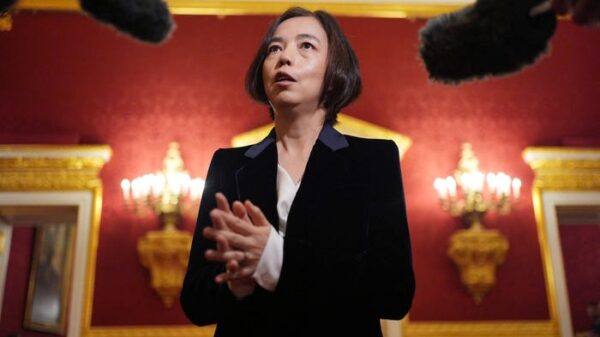Czechs are set to cast their votes on March 15 and 16, 2024, in a general election where the party of billionaire former Prime Minister Andrej Babis is predicted to receive the most support, although without a majority. Babis, who identifies as a “Trumpist,” leads the ANO (Yes) party, which could potentially steer the Czech Republic closer to EU outliers like Hungary and Slovakia. This shift could complicate relations with both Kyiv and Brussels.
Despite the expected success of Babis’s party, analysts anticipate that it will need to negotiate a coalition with other political groups to form a government. Babis’s campaign has focused on promises of increased welfare and a reduction in military aid to Ukraine, contrasting sharply with the current government’s approach. The ruling centre-right coalition, led by Prime Minister Petr Fiala, has provided substantial humanitarian and military support to Ukraine but faces criticism from voters who feel domestic issues have been overlooked.
“Change is necessary. The Czech Republic must be more autonomous; it must not be just a messenger boy for Brussels,” stated Jaroslav Kolar, a 68-year-old geographer, in an interview with AFP. Conversely, Anna Stefanova, a 41-year-old doctor, expressed her concerns about a potential “sway towards Russia.”
Babis, who served as prime minister from 2017 to 2021, has maintained a critical stance towards certain EU policies and enjoys strong relations with leaders such as Hungarian Prime Minister Viktor Orban and Slovakia’s Robert Fico. These ties have persisted even as tensions with Moscow have escalated following Russia’s invasion of Ukraine.
Polling stations will operate from 1200 GMT to 2000 GMT on Friday and reopen from 0600 GMT to 1200 GMT on Saturday, with results anticipated by Saturday evening. Current opinion polls indicate that ANO could secure over 30 percent of the vote, while Fiala’s Together grouping trails with approximately 20 percent.
Babis expressed his ambitions during a recent television debate, declaring, “We are aiming for a single-party government. We have ruled before with success.” He has positioned himself as a “peacemonger,” advocating for a truce in Ukraine and promoting a “Czechs first” agenda, a sentiment reminiscent of former US President Donald Trump.
His political strategy includes the formation of the far-right Patriots for Europe group in the European Parliament, which also counts France’s National Rally among its members. In contrast, Fiala, a former political science professor, has urged voters to consider their options carefully, stating on social media that the election will determine whether the country continues on a path of “freedom, high-quality democracy, security, and prosperity.”
Analysts like Josef Mlejnek from Charles University caution that a win for Babis may not lead to significant shifts in policy. “Babis is a pragmatic businessman, and the only thing he cares about is being prime minister,” he noted. The outcome will heavily depend on the election results, particularly if Babis’s party fails to secure a majority.
Should Babis lead the vote but lack a governing majority, he may seek to form a coalition with the far-right SPD movement, currently supported by around 12 percent of voters. Concerns have surfaced regarding the influence of Russian propaganda on the electoral process, with analysts reporting that Czech TikTok accounts are disseminating pro-Russian content that could sway public opinion.
Both Babis and Fiala have faced scandals that have marred their reputations. Fiala’s administration has been criticized for the justice ministry’s decision to accept $44 million in bitcoins from a convicted criminal. Meanwhile, Babis, who is the seventh-wealthiest Czech according to Forbes, is set to face trial for alleged EU subsidy fraud exceeding $2 million. He has consistently denied any wrongdoing, describing the allegations as a “smear campaign.”
As the election approaches, the implications for the Czech Republic’s international relations and internal policies remain a focal point of discussion among voters and analysts alike.





































































